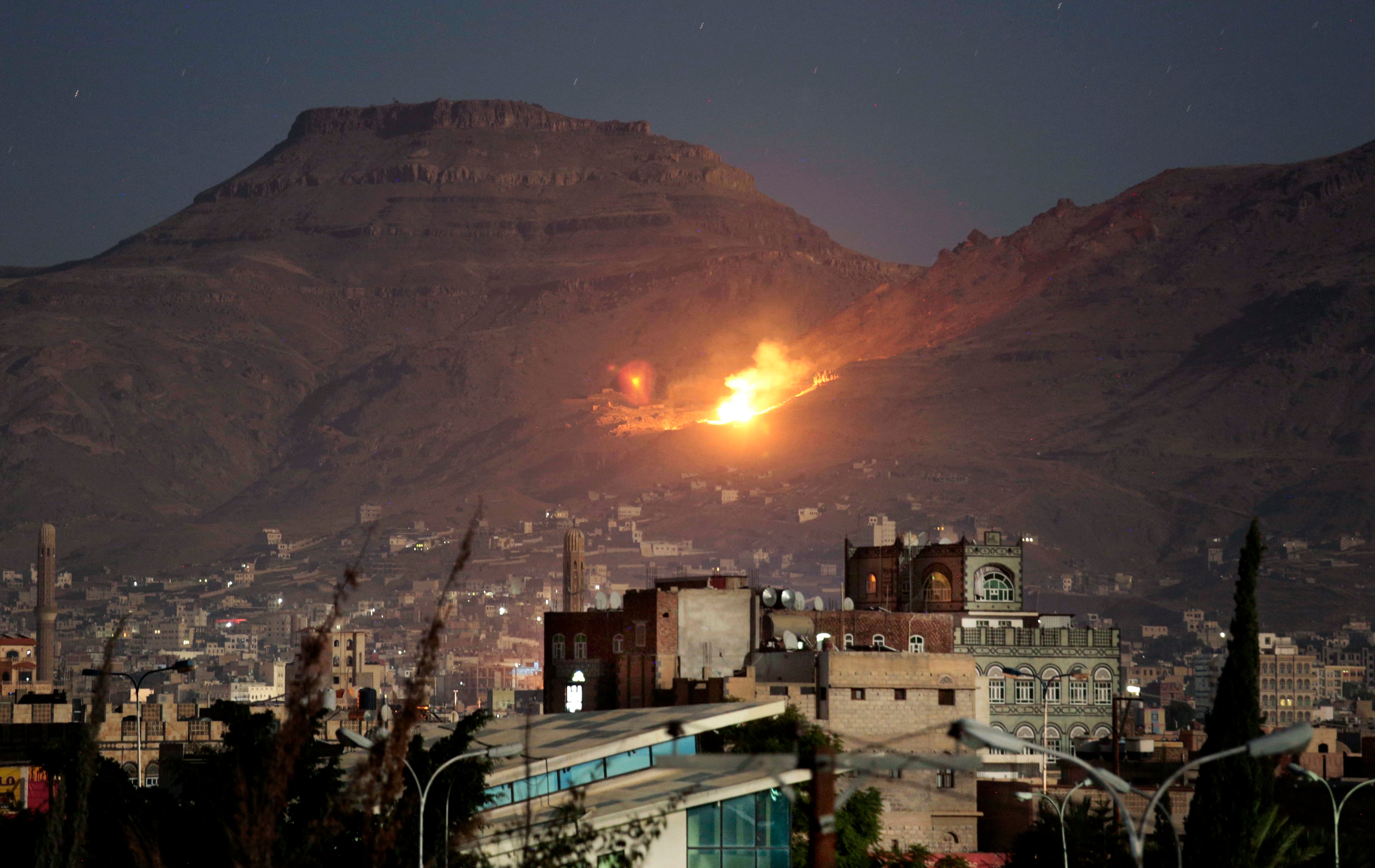WASHINGTON — The Pentagon has denied in a report to Congress that U.S. personnel in Yemen who interrogated Yemeni detainees for information about potential terrorist threats had witnessed or were complicit in torture or other mistreatment of any detainee.
The report, which has not been publicly released, was required by Congress in the 2019 defense bill following a series of reports by The Associated Press and human rights groups of sexual abuse and other mistreatment of Yemenis in prisons overseen by the United Arab Emirates — a key U.S. ally in the Middle East — and militias backed by the UAE.
The Trump administration has come under pressure in Congress to end its support for the Arab coalition fighting Houthi rebels in Yemen. In addition to concern by some in Congress over allegations of abuse in prisons run by the Emiratis and their militia partners, critics argue the U.S. should stop supplying weapons for the Saudi-led bombing campaign.
The civil war in Yemen has killed more than 10,000 people, displaced 2 million and driven the Arab world's poorest country to the brink of famine. The conflict pits the U.S.-supported Saudi-UAE coalition and the internationally recognized Yemeni government against Shiite rebels known as Houthis, who are allied with Iran. The Houthis swept into Yemen's capital, Sanaa, in 2014 and the coalition entered the war the following year.
RELATED

The Associated Press over the past two years has chronicled multiple allegations of torture and sexual abuse of Yemeni detainees in a network of secret prisons run by the UAE and affiliated forces, and that during later interrogations, American personnel may have witnessed evidence of the abuse. The Emirati government has denied the allegations.
"Based on information gathered at this time," an unclassified version of the Pentagon report said, the Pentagon "has determined that DOD personnel have neither observed nor been complicit in any cruel, inhuman or degrading treatment of detainees in Yemen."
It added that U.S. officials have "not developed any independent, credible information" that U.S. allies or partners have abused detainees in Yemen.
Andrea Prasow, deputy Washington director at the Human Rights Watch, said she was troubled by the Pentagon's denial.
"It could be true that they actually don't have their own independent information ... based on eye-witness accounts," she said. "Even if that's true, though, there is so much compelling information that many, many detainees have been and are being abused by U.S. partner forces in Yemen that it's utterly incredible that DOD would not be able to confirm at least some of that."
The report said U.S. forces do not hold detainees in Yemen. "Rather, U.S. forces conduct intelligence interrogations of detainees held in partner custody," it said. "All DOD interrogators and debriefers are trained in the law of armed conflict and humane treatment standards, and trained on how to look for and report on any detainee abuse." It said they are required to report immediately to their chain of command any violation of those standards.
"This includes any suspected or alleged violations by non-DoD U.S. or foreign personnel," it added.
RELATED

The Pentagon report, including a classified version, was delivered to Congress last month. The Associated Press obtained a copy of the unclassified version this week from congressional aides. A Pentagon spokeswoman, Navy Cmdr. Rebecca Rebarich, said Tuesday that officials are continuing to look into the allegations of abuse.
"Due to our minimal diplomatic and military footprint in Yemen, we have limited ability to independently substantiate these allegations," she told AP. "We have no substantiating information of these allegations at this time."
In the report, the Pentagon said that because of "active threats against our homeland posed by terrorist networks operating from Yemen," Defense Department personnel have been in Yemen since May 2016 supporting military operations against al-Qaida's affiliate on the Arabian Peninsula and Islamic State group elements in Yemen.
The U.S. also conducts periodic airstrikes against militant targets in Yemen. On Sunday, it confirmed that a Jan. 1 airstrike had killed Jamal al-Badawi, an al-Qaida operative involved in the October 2000 bombing of the USS Cole in Yemen that killed 17 sailors.
Associated Press writer Maggie Michael contributed to this report.





